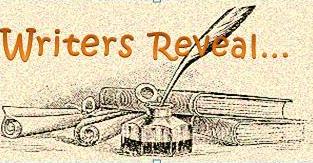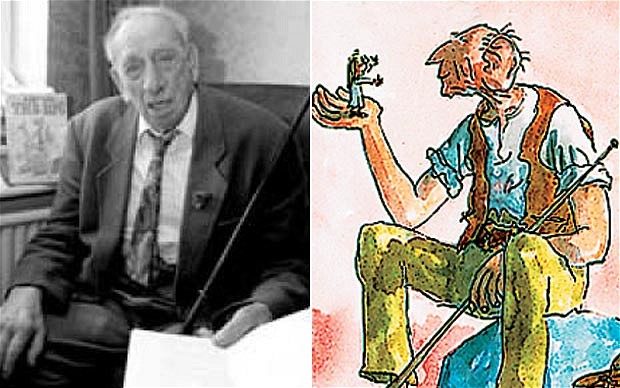Playing with Magic (Writers Reveal)
Welcome to another round of Writer’s Reveal! This month’s topic was sent to us by Rhianna of A Parenting Life, who suggested the prompt “a tale about siblings with a magical twist”. Here’s a short story I wrote based on that idea. Hope you enjoy! Thanks for the topic, Rhianna!
Playing with Magic
 “My turn, my turn!”
“My turn, my turn!”
Amy reached her arms out for the toy in her elder sister’s hands, but she pulled it away.
“Wait! Just one more.”
“No, Brenda! You had him a long time! It’s my turn!”
“Fine…”
With a sigh, Brenda handed over the toy. It was an old plush rabbit, covered in gray fur that had once been white and sporting a blue ribbon around its neck. The younger girl laughed as she squeezed it with all the strength a five-year-old could muster.
“Careful, Amy!” Brenda frowned at her little sister. “Don’t hurt him! Remember what Grandma said.”
Amy seemed reluctant to loosen her hold, but she obeyed nonetheless. After rising to her feet, she closed her eyes, whispered into the rabbit’s ear, and spun around once on her toes. When she opened her eyes, she was draped in an opulent pink dress. Brenda rolled her eyes.
“A princess again?” the eight-year-old sighed. “Pick something else already!”
“But I like being a princess!” said the younger girl. “It’s my favorite!”
“Don’t you wanna try something different?”
“Like you?” Amy pointed at the fairy wings on her big sister’s back. Brenda nodded.
“Yeah! He can make you anything you want!”
“OK, show me something better than a princess!”
The five-year-old handed the toy back to her sibling and sat back in her seat at the tea party table. Brenda rose from her chair and followed the same procedure as her sister, closing her eyes and whispering in the rabbit’s ear before spinning on the spot while hugging it tight. When the older girl stopped and opened her eyes, Amy fell into a fit of giggles at the sight of the furry ears and tail that had appeared out of nowhere.
“Kitty!” she laughed. “That’s funny! I wanna try too!”
Brenda took a bow as her sister applauded. Before she could return the rabbit to Amy, however, there was a loud click and the front door started to open. The girls froze, knowing this could only mean one thing: their mother had come to pick them up early!
The sisters glanced at the door before turning to each other with panicked looks on their faces. What would she say when she saw them? There was no time to wish themselves back to normal; they would just have to face her and hope their grandmother could explain everything.
Brenda dropped the rabbit and stood up straight with Amy just as their mother appeared in the doorway. The woman immediately looked her daughters up and down as she walked in, but to their surprise, she didn’t seem to mind the dress or the cat ears at all.
“Hello, girls!” she said with a smile. “Did you have fun with Grandma today?”
The children nodded, maintaining innocent expressions while secretly trying to make sense of their mother’s indifference. Just then, their grandmother walked into the living room with a tray of cookies in her hands and a smile on her face.
“Oh, hello, Martha!” said the old woman brightly. “We weren’t expecting you yet.”
“Hi, Mom”, Martha replied, walking across the room to greet her mother with a kiss on the cheek. “Meeting finished early. Sorry to surprise you like this.”
“Don’t be silly; it’s always a pleasure to have you here! Right, girls?”
Both women turned to Brenda and Amy, who once again nodded without a word. They were still waiting for a reaction to their bizarre appearances.
“So what have you been up to?”
It took the girls a moment to register their mother’s question, but before they could reply, their grandmother spoke up.
“They were just playing with Cottontail. He was keeping them company while I was in the kitchen.”
“How nice!” said Martha as she glanced at the toy rabbit lying beside the tea set. “You know, your Aunt Sara and I used to play with him all the time when we were your age. I hope you’re having just as much fun with him as we did!”
While the children exchanged looks of surprise, their grandmother invited her daughter to stay for tea and cookies. Brenda and Amy enjoyed the rest of their tea party as casually as they could in cat ears and a princess dress, until at last their mother told them it was time to go home.
“Oh, I forgot the tablecloths in the car”, said Martha. “Say goodbye to Grandma, girls. I’ll be right back.”
The moment their mother was out the door, Brenda and Amy turned to their grandmother, and the elder sister asked the question on both their minds.
“Grandma, why can’t Mommy see us?”
The old woman smiled. “For the same reason only Mommy and Aunt Sara could see each other, or why only my brother and I could see each other. That’s just how Cottontail works. Now you should change back before your mother gets here.”
The sisters did as they were told, having Cottontail return them to normal before bidding their grandmother farewell. A minute later, Martha had returned a stack of dry-cleaned tablecloths to her mother and was ushering her daughters out the door. As they walked behind their mom to the car, Amy whispered to her sister.
“Brenda, do you think Cottontail could make everyone see us?”
The older girl shook her head. “I don’t think so. Only brothers and sisters see each other, that’s what Grandma said.”
“Too bad. I kind of wanted Mommy to see me as a princess.”
Brenda wrapped an arm around her little sister and laughed. “I’m sure she already does, Amy. I’m sure she already does.”
This has been a special topic post for Writers Reveal, a monthly blog swap among several talented writers. Be sure to check out the other blogs participating in the event. Thanks for reading!

Other bloggers in Writers Reveal
Melissa Khalinsky: Melissa Writes
Becky Fyfe: Imagine! Create! Write!
Rhianna: A Parenting Life
Ashley Howland: Ghostnapped
Emily Hawker: You Learn Something New Every Day
Five Reasons Why Writing Poetry is Good for You
After a whole series of long posts, I think now is a good time to unwind with a short one. Lately I’ve written quite a bit of poetry, and I find it’s a format that I really enjoy working with. So continuing on the same line as my flash fiction post, here’s a brief list of reasons I believe poetry is an art that every writer should try at least once. Note that this list is based entirely on personal experience, so if you disagree with any points or would like to add some of your own, feel free to weigh in! Enjoy!
Why Writing Poetry is Good for You
 1) It’s a form of free writing. True, all creative writing can be considered “free”, but even the simplest stories still need to follow a basic structure to be complete. Poems, however, don’t really come with universal rules. They can cover any subject matter. They don’t have to tell a story. They don’t have to rhyme. They don’t even have to make sense! All you need is a simple idea, and your imagination is free to run with it until it becomes a full piece. It’s wonderfully liberating to write without the restrictions of prose. And who knows? You may just learn something about yourself in the process. I usually do.
1) It’s a form of free writing. True, all creative writing can be considered “free”, but even the simplest stories still need to follow a basic structure to be complete. Poems, however, don’t really come with universal rules. They can cover any subject matter. They don’t have to tell a story. They don’t have to rhyme. They don’t even have to make sense! All you need is a simple idea, and your imagination is free to run with it until it becomes a full piece. It’s wonderfully liberating to write without the restrictions of prose. And who knows? You may just learn something about yourself in the process. I usually do.
2) It’s a gateway for inspiration. Sometimes writing a short piece without inhibitions is just what you need to find inspiration for a longer work like a short story or a novel. Creating poetry has given me extra motivation for stories, and some ideas have even been converted from the former to the latter format during writing. Though many of my poems are written just for fun, they also help me break creative blocks and open the door to new and greater ideas, even if (or especially when) that was never my intention. Take note: if you often suffer from writer’s block, a good poem or two may be the spark that will get you back on track.
3) It’s an emotional release. This is one of the main reasons I write poetry. Sometimes I have so many emotions built up inside me that I just have to set them free somehow, and poetry is usually a great release for those feelings. More than once, I’ve managed to relieve negative emotions by turning them into a poem. So if you’re ever feeling down, try using your feelings as poetic inspiration. It may not solve your problem, but at least you may feel better afterwards.
4) It exercises the mind. I’m sure many prose writers who try their hand at poetry find that it’s not as easy as it may seem. Writing poems is quite different from writing stories, and that means it requires a different way of thinking. You have to train your mind to get into a rhythm, to feel the flow of the words and see the imagery in the lines. Stanza poems can be especially tricky because of the added challenge of rhyme, but even free verse poetry takes real skill to write well. If poetry isn’t your niche, you may enjoy it for the challenge of trying something different, and for the lessons it can teach you to help improve your writing in your regular format.
5) It’s relaxing. If for no other reason, write poetry because it feels good! Poems can be a lot of fun to write, especially when you don’t put pressure on yourself to make them perfect. If you like poetry simply for the beautiful art it is, then write for the fulfillment it brings you, and let the above reasons naturally make it all the more enjoyable. Have fun!
What about you? Do you write poetry? If so, why do (or don’t) you enjoy it?
Writer’s Toolkit: Pocket Notebook
So I figured it was time for another Writer’s Toolkit post, as it’s been a while since I’ve shared one. While trying to decide which tool to write about next, I realized I haven’t yet mentioned an essential one that’s been especially useful in my experience as a writer. So to name another indispensable item for the serious artist, here’s a brief review of one of my personal favorites: the pocket notebook.
The pocket notebook I use was a Christmas present from my cousin, one of several people in my family who know of my passion for creative writing. She told me it was for carrying around in my pocket or backpack so I could jot down ideas as they came to me. So that’s what I did, and ever since, it’s been a handy tool for taking notes while on the go. I use it to keep track of random thoughts, lists of blog post ideas, possible story titles, etc. It’s always great to have with me whenever I go out!
One of my favorite places to take my notebook is the airport. While sitting in the café waiting for arrivals, I like to observe people around me and try to imagine what their stories might be, and these thoughts sometimes become notes that I could use later on. Another fun use for my notebook is keeping track of the observations I make about nature when I sit outside, as these often become inspiration for poetry. Being naturally forgetful, keeping a written record of my observations has been immensely helpful for my fictional works.
Much like the journal I’ve written about before, my notebook serves a useful purpose as a collection of the scraps of ideas that come out of my head. This gives me a clear vision of my thought processes, especially the more random and incomplete ones that don’t appear in my journal. This also makes my notebook a great source of inspiration whenever I hit a creative block. Sometimes notes that seemed like simple observations at the time of writing turn out to be good ideas for fiction. So don’t neglect to record your thoughts while you’re out and about. You may discover something in your notes later on that you never even realized was there!
Summary
Advantages of Carrying a Pocket Notebook
- Always be prepared when new ideas strike
- Write down observations as they happen
- Keep scraps in one collection
- Maintain source of possible inspiration for future writing
A pocket notebook is a great tool for any writer, especially fiction writers who are constantly seeking new ideas for stories. If you find that inspiration often strikes at unpredictable and even inconvenient moments, you should definitely consider keeping a small notebook with you at all times. The writer in your mind will thank you!
Writer’s Carnival: Your New One-Stop Writing Shop
Show of hands: who wants to be part of a writing community that offers a friendly network of fellow writers, insightful critique from peers, cash-prize contests, sorted lists of writing prompts, and helpful resources on how to improve your craft all in one place? Then you’re in luck, because today’s post is about an awesome website that offers all of that and more! Introducing Writer’s Carnival, your new one-stop shop for all your writing wants and needs! Let’s take a quick look together, shall we? (You can put your hand down now.)
What is Writer’s Carnival?
 Writer’s Carnival is an online community where writers can post original stories/poetry and review each other’s work. It’s a place for them to connect and share in their love of all types of creative writing from poetry to novels, be it through forums, group discussions or status updates. The site functions on the honor system policy: members are expected to write at least three reviews for each piece they upload themselves. This system is what has kept the community thriving for over a year. But you don’t have to take my word for it: just read what the administrators have to say. Speaking of whom, the staff are constantly active and willing to help out, so why not make some new friends while you’re there?
Writer’s Carnival is an online community where writers can post original stories/poetry and review each other’s work. It’s a place for them to connect and share in their love of all types of creative writing from poetry to novels, be it through forums, group discussions or status updates. The site functions on the honor system policy: members are expected to write at least three reviews for each piece they upload themselves. This system is what has kept the community thriving for over a year. But you don’t have to take my word for it: just read what the administrators have to say. Speaking of whom, the staff are constantly active and willing to help out, so why not make some new friends while you’re there?
What does Writer’s Carnival have to offer?
Aside from friendly critique and networking opportunities, Writer’s Carnival offers plenty of useful resources and social events that keep the community active. Here’s what you get access to with a free membership:
- Writing resources, including prose/poetry tips and links to other writing sites
- Writing prompts (updated monthly)
- Social events such as Power Hour, Bust Out Your Blog and Post-a-Palooza
- Weekly Wednesday Challenge for a chance at publication
- Social networking through group discussions, status updates and private messaging
You also have the option to upgrade your account for access to even more awesome features:
- Post writing for feedback from peers
- Enter monthly contests for cash prizes and publication
- Submit writing to Reader’s Carnival, an e-zine that showcases the work of Writer’s Carnival members
- Submit a publication to Member Success Stories and spread the word about your work
And that’s just what’s available now. There are also classes and writing services coming soon!
Why join Writer’s Carnival today?
I’ve been a member of Writer’s Carnival for over a year now, and my experience on the site so far has been great. The community is friendly and insightful; many of the reviews I’ve received have helped me improve my craft, and these in turn inspire me to write reviews that can help other writers develop their own creative skills. I’ve come to understand the true value of feedback and networking, as well as the importance of giving as much as, if not more than, you get. I’ve even found plenty of inspiration for new pieces through social events on the site. Overall, it’s a welcoming community that continues to be a part of my growth as a writer.
So become a member of Writer’s Carnival and join in the fun today! See you on the fairgrounds!
My First Novel?: Fanfiction as a Practice Run (Part VII- The Lessons)
At last, the time has come for the final chapter of my story. Wondering what you’ve missed? For the past several weeks, I’ve been telling the story behind a “novel” I recently published online: a fanfiction titled Chaos and Control. Part 1 is about the idea for the story, Part 2 is about the planning, Part 3 is about the writing, Part 4 is about the editing, Part 5 is about the publishing, and Part 6 is about the feedback. Have fun reading the last part of the story!
Part VII: The Lessons
In the interest of keeping this post brief, today’s topic will simply be a review of the lessons taken from my fanfiction that I believe can apply to the experience of writing a real novel. Enjoy!
What I learned from Chaos and Control:
 1) When an idea grows in your mind to the point where it starts to consume you, chances are it’s worth turning into a story. Don’t ignore it; embrace it, shape it, bring it to life.
1) When an idea grows in your mind to the point where it starts to consume you, chances are it’s worth turning into a story. Don’t ignore it; embrace it, shape it, bring it to life.
2) Planning is important, but it isn’t everything. The skeleton of a plot and a handful of ideas are great to start with. After that, just write, and let the story surprise you as you flesh it out.
3) Serious writing takes serious commitment. If you ever want to finish that novel, work on it every single day. No excuses; just do it.
4) Well-developed characters will write themselves. When stuck, start writing purely from instinct and see where the characters go on their own. They’ll probably take the story in the right direction.
5) Editing takes just as much effort as writing, if not more. Do not assume your first drafts are perfect; it’s more than likely they’ll require a lot of polishing before they’re worthy of publication.
6) Your technique may change over the course of the writing process. Don’t neglect to revise the entire novel to make sure the style of the first chapters matches that of the last ones.
7) Details and tropes are fun to place, but they’re worthless without a strong storyline to hang on. The most important parts of the story should be the core elements of plot and character development.
8) Never underestimate the importance of marketing and networking. Your novel isn’t likely to draw many readers if nobody knows it exists.
9) Don’t be surprised if your novel doesn’t get as much attention as you’d like, but don’t be discouraged either. If your story can inspire one reader, then it was worth writing.
10) Not everyone will notice the details in your story, but don’t let that get you down. As long as you placed them well, someone is bound to appreciate them.
11) Know your audience and trust their opinions. Feedback from readers is invaluable not only for the current piece, but for any future pieces you may write.
12) The type of story doesn’t make it more or less special than the others you write. As long as you pour your heart and soul into it and receive a valuable experience in return, any story is worth writing.
This concludes the story behind my fanfiction. I hope you’ve enjoyed following my experience with Chaos and Control, and that you’ve found the story behind it as enlightening as I did. If you haven’t yet, feel free to comment with your thoughts. Otherwise, have fun applying these lessons in your writing, and best of luck with your own novels! Thank you for reading!
Note: If you’re interested, you’re more than welcome to read my story and even leave some reviews. I promise you don’t need to know too much about the Sonic universe to appreciate it. Reviews are positive, but contain spoilers! Thank you!
The Habits of a Quirky Writer (Writers Reveal)
Welcome to another round of Writers Reveal! Once again, I’m pressing pause on the story behind my first “novel” to write about a topic sent by one of the amazing writers in our group. This month’s prompt comes from Ashley Howland, who suggested we write about “quirky writer’s habits”. Thanks for the prompt, Ashley! Here goes nothing!
The Quirky Things I Do
 Yes, I consider myself a quirky person. What writer doesn’t to a certain degree? We all have our strange habits: some help us find inspiration for our writing, some give us the motivation we need to create, and some are just byproducts of the odd ideas in our minds. But they’re all part of what makes us the unique people we are.
Yes, I consider myself a quirky person. What writer doesn’t to a certain degree? We all have our strange habits: some help us find inspiration for our writing, some give us the motivation we need to create, and some are just byproducts of the odd ideas in our minds. But they’re all part of what makes us the unique people we are.
So what are some of my quirks? I have quite a few, actually:
- I get up and walk around while brainstorming for a story.
- I make faces and mouth words when thinking about the dialogue between my characters.
- I sing and/or dance when I’m alone (or at least I think I’m alone).
- I reread favorite books from my childhood out loud.
- I talk to myself as if the voices in my head are having a conversation.
And these are just the quirks related to my writing!
Old Habits, New Ideas
I’m not afraid to admit my quirks, but don’t mistake them for the random acts of a geek (which I am, but that’s beside the point). Although I’ve been practicing these habits for a long time, they’re almost always helpful to my writing, even if it’s just to fight off the inevitable stress of a creative block. How so, you ask?
1) I walk around because I’m the type of person who thinks better when moving than when sitting still.
2) I subconsciously move my face in sync with scenes playing out in my head. This helps me get a better sense of how certain ideas will (or won’t) work in a story I’m planning.
3) I sing and dance to release tension. Music inspires me to create and motivates me to keep writing when I feel stuck. Plus it’s loads of fun!
4) I read books out loud as an exercise to get a feel of narrative voice. This is especially fun to do with Dr. Seuss’s stories, which almost always have rhyme and rhythm.
5) I talk to myself to get the words in my mind out in the open. I don’t care if it makes me seem crazy sometimes; it’s a great way to clear my head and hear how some of my ideas sound out loud.
Writers have their fair share of quirks (as most artists likely do), but in the best cases, we can make them work to our advantage. Our habits are much more than average idiosyncrasies; they help shape our artistic spirits and spark our creativity. And if not, at least we can take comfort in knowing they keep us from being utterly boring!
What are some of your quirks? Are they ever helpful to your creativity?
This has been a special topic post for Writers Reveal, a monthly blog swap among several talented writers. Be sure to check out the other blogs participating in the event. Thanks for reading!

Other bloggers in Writers Reveal
Melissa Khalinsky: Melissa Writes
Becky Fyfe: Imagine! Create! Write!
Rhianna: A Parenting Life
Ashley Howland: Ghostnapped
Emily Hawker: You Learn Something New Every Day
My First Novel?: Fanfiction as a Practice Run (Part VI – The Feedback)
On to Part 6 of my story. Only just joining me now? Here’s what you’ve been missing. I’m in the process of telling the story behind a “novel” I recently published online: a fanfiction titled Chaos and Control. Part 1 is about the idea for the story, Part 2 is about the planning stage, Part 3 is about the writing stage, Part 4 is about the editing stage, and Part 5 is about the publishing stage. Have fun reading the next part of the story!
Yes, the story behind my fanfiction is almost over. Today’s topic covers the final stage of the process: the feedback I received on the novel. This was the point where I would finally find out if all my hard work was worth the effort, at least in the eyes of my readers. Enjoy!
Part VI: The Feedback
 The site on which I published Chaos and Control, FanFiction.Net, has a system that allows readers to post one (and only one) review on each chapter of a story. This meant that my readers would each be able to leave a maximum of 14 reviews on my novel, not including additional comments they might leave under a guest name. I was eager to learn their thoughts on every one of my chapters, as well as their opinions of the story as a whole.
The site on which I published Chaos and Control, FanFiction.Net, has a system that allows readers to post one (and only one) review on each chapter of a story. This meant that my readers would each be able to leave a maximum of 14 reviews on my novel, not including additional comments they might leave under a guest name. I was eager to learn their thoughts on every one of my chapters, as well as their opinions of the story as a whole.
In truth, only one person left a review on every single chapter, and that was the same person who had been supporting my work from the beginning. He’d already made his opinions clear to me directly, yet he was kind enough to also make them public. A few other readers left several reviews throughout the fanfiction, and though their comments differed slightly, there was one thing they all had in common: they loved Chaos and Control. And with a 100% approval rating from my audience, how could I not be proud of my work?
Glowing Reviews and Hidden Fears
I mentioned in the previous post that my story didn’t receive as much attention as I’d hoped, at least in the beginning. However, the attention it did receive was entirely positive, so for that I was grateful. Of course, I can’t say with any certainty how much of the Sonic fanbase is truly critical, but just the fact that readers were willing to take the time to comment at all was a good sign. At least one of my fears had been quelled: that no one would read my story.
The main reason I was afraid of not being able to gain an audience was the fact that I hadn’t been active on the site for a long time. I don’t just mean publishing my own stories, but also reading and reviewing those of other fanfiction writers. Because of this, I was sure almost no one on the archive would remember me, despite the popularity of Generation Beta and the 30+ members who had added my profile to their alert lists. In the end, I had to trust that my story could attract readers entirely on its own, and taking that into consideration, I suppose it was relatively successful. What I had to worry about next was exactly how successful my writing would be.
The Invisible Details

Meet Cream the Rabbit, Amy’s best friend and one of the secondary leaders of Control. Her Gift is in Flight, and she’s a mother of 5-year-old triplet girls.
As a writer who puts a ton of thought into every detail of her stories, another of my biggest fears regarding Chaos and Control was that my readers would miss the subtle hints scattered throughout the plot. Would anyone recognize the constant references to the stars as a play on Shakespeare’s notes on fate? Would they notice the color symbolism in scenes like when the lead couple meet, where Miles (Control) is wearing mostly black with some white and Maria (Chaos) is wearing mostly white with some black (black being one of the colors of Chaos and white being one of the colors of Control)? Would they catch the foreshadowing clues that are briefly mentioned: Sonia’s secret fear of losing her Gift, the Chemistry test that Eugene aced, the knife Miles and Maria borrow from a building site they pass on their last day together, etc.? Would they realize that the moment Maria stops calling her father “Daddy” and starts calling him “Dad” is the defining moment when she finally becomes a woman? Some details function as plot devices, others are simply there to illustrate the characters’ development, but all of them are important to me, and I hoped they wouldn’t go completely unnoticed.
The most significant plot device appears in the middle of the story: a novel the students read for Literature class. This novel is important for two reasons: (1) it sets off the downward spiral in the second half of the plot; and (2) it hints at the course of events the main characters will possibly face for the rest of the story. The book is a parallel to Shakespeare’s Romeo & Juliet, telling the tragic story of teenage star-crossed lovers Ronan and Julia, whose forbidden affair in Renaissance-period circumstances ends in both their deaths. My hope was that readers would recognize this as an analogy to Miles and Maria’s story, though whether it was foreshadowing or simply a red herring (or both) would be revealed in time.
In fact, no one mentioned this novel in their reviews, which was disappointing to say the least, but they did seem to notice some of the other details I had planted. One reader took notice of the changes in Maria’s behavior in a later chapter, and another pointed out the synchrony between the lovers when they yell the same words at the exact same time, despite being on opposite sides of town. Although not every detail seemed to be noteworthy, I was happy that my audience was able to appreciate the story beyond the superficial theme of forbidden love.
Mary Sue, is that you?

Meet Tikal the Echidna, Rex’s mother and one of the secondary leaders of Chaos. Her Calling is in the Mind class, and she’s one of the few pacifists of Green Hill.
If there’s one mistake on every good fiction writer’s list of worst nightmares, it’s the dreaded Mary Sue. No writer should ever aim to make their characters perfect, because with perfection comes boredom. Around the end of the writing process, I had become terrified that my Romeo might be perceived as a little too “good” in some aspects: too sweet, too selfless, too brave, etc. Yes, he’s supposed to be a hero, but his flaws also need to be apparent so he’ll be relatable. I had the same fears to a lesser extent with my Juliet, whose strong character development at least kept me confident that she would be likable; and I hoped my supporting characters would be appreciated for both their positive and negative traits, especially my Mercutio and Tybalt. I also wanted to avoid making my Paris “pure evil”; although he is an extremely unlikable character, I tried to make it clear that his personality is a product of his circumstances and not really his own fault. So the question arose: would all my characters come across as multidimensional as I’d planned, or would some of them fall flat?
Fortunately, my concerns seemed to be mostly unfounded. Both my lead characters were quite popular among my readers, and nobody expressed any dislike for the supporting cast. One person even claimed to be undecided on whether Miles or Sonia was their favorite character. Although my best friend thinks he should have been killed off, someone else expressed pity for Eugene, despite the awful things he does throughout the story (mostly in the last few chapters, *hint hint*). There was one review that stated the reader’s favorite part of the fanfiction was the characterization, and she liked how much thought I had clearly put into it. I even had readers tell me they thought my story was better than the original Romeo & Juliet! I’m not saying I would agree, but it was very flattering nonetheless.
Overall, I’m very proud of what I’ve accomplished with Chaos and Control. Sure, it’s still not as popular as Generation Beta, and I highly doubt it ever will be. Maybe the chapters are too long (Chaos and Control averages over 10,000 words per chapter while Generation Beta never passes 5,000), or maybe Sonic fans in general prefer action/adventure to romance, or maybe the fact that the story takes place in an alternate universe just doesn’t make up for writing canon characters OOC and toward the background. Regardless, I managed to tell a story that I love and that my readers enjoy. For everything I’ve put into it and learned from it as a dedicated writer, Chaos and Control is a story that I’m pleased to consider my first serious novel.
This concludes the sixth and penultimate part of the story behind my fanfiction. The final post will be a brief review of everything I learned throughout this amazing experience. Thanks for reading!
Note: If you’re interested, you’re more than welcome to read my story and even leave some reviews. I promise you don’t need to know too much about the Sonic universe to appreciate it. Reviews are positive, but contain spoilers! Thank you!
Sonic the Hedgehog and all related characters belong to Sega. All official artwork is displayed for illustrative purposes only. I own nothing!
My First Novel?: Fanfiction as a Practice Run (Part V – The Publishing)
Now for Part 5 of my story. If you’re only just joining me, I’m in the process of telling the story behind a “novel” I recently published online: a fanfiction titled Chaos and Control. Part 1 is the idea’s introduction, Part 2 is about the planning process, Part 3 tells about the writing, and Part 4 covers the editing. Have fun reading the next part of the story!
Today’s post focuses on the publishing of the novel online. After all the fun of writing and editing the fanfiction, I have to confess that this was the “dark point” of the story. Still, it was a learning experience like every other stage before, so I have no regrets. Enjoy!
Part V: The Publishing
 Before I finished the story, I thought about how exactly I would publish it. I decided to post one new chapter every Saturday; by posting once a week, my chapters would be spaced out enough to avoid being overwhelming, while still being consistent enough to keep my readers engaged. After that was settled, I needed an idea of when I would start publishing. By a stroke of luck, I noticed that at the pace I was writing, I would probably be able to finish my fanfiction around the release date of the new Romeo & Juliet movie. So for fun, I opted to post the first chapter in October. All I needed to do then was finish writing by September. And with all my hard work and dedication, that’s exactly what I managed to do.
Before I finished the story, I thought about how exactly I would publish it. I decided to post one new chapter every Saturday; by posting once a week, my chapters would be spaced out enough to avoid being overwhelming, while still being consistent enough to keep my readers engaged. After that was settled, I needed an idea of when I would start publishing. By a stroke of luck, I noticed that at the pace I was writing, I would probably be able to finish my fanfiction around the release date of the new Romeo & Juliet movie. So for fun, I opted to post the first chapter in October. All I needed to do then was finish writing by September. And with all my hard work and dedication, that’s exactly what I managed to do.
Now you may be wondering why I consider this stage the dark point of my experience. The truth is that I had quite a few fears regarding this story, but the excitement of working on it mostly drowned them out during the writing phases. Once the fanfiction was done and ready to be published, however, they all came rushing back. What were they, exactly? Bear with me for a bit and you’ll soon understand.
The Debut of Chaos and Control
Here’s a fact I haven’t mentioned yet: Chaos and Control was not sent out into the world unread. Throughout the entire process, I had the support of my best friend to keep me going. After each chapter was written and revised once, I would send a copy of it to him, and he would later give me feedback on what he had read. Even though his comments were mostly praise, they kept my spirits up to the very end of writing. I was so excited about my story that I was happy to already have one loyal reader.
But when the fanfiction was done and the first chapter’s publish date was drawing near, my biggest fears kicked in: that no one else would read it, and if they did, that they wouldn’t “get it”. When I shared the story with my best friend, I was able to take the fanfiction directly to him and discuss all the ideas I had implemented into my work. I wouldn’t have that chance with my other readers. Instead, I had to trust that they would find the story themselves, and that all the details would come across the way I had planned. And I will say this much: that wasn’t easy at all.
If you write it, will they read?
When October finally came, I started publishing Chaos and Control. As promised, I posted one new chapter a week, always on Saturday in order to reach as many readers as possible. I was excited and nervous at the same time, but more than anything, I was happy to have finally reached this stage. All I needed to do now was wait for the Sonic fans on the archive to stumble upon my story. I checked my profile stats every day to see how many hits it was getting. Unfortunately, the results were rather disappointing.

Meet Knuckles the Echidna, Rex’s father. He’s one of the secondary leaders of Chaos, and his Calling is in Power.
I told myself that it was normal. My best friend assured me that the story would be more likely to get attention after a few chapters had been posted. However, after a month of publishing, the hits still weren’t as frequent as I had expected. I started to wonder what I might be doing wrong. Was the synopsis not interesting enough? Were readers turned off by the idea of a story starring fan characters instead of canon characters? Did they not care for Shakespeare or Romeo & Juliet? Were the chapters too long? I kept on questioning and doubting myself week after week, until suddenly I was struck by a horrible thought…
Nobody cares.
I didn’t want to think it. I had been trying to avoid it since before I posted the first chapter. But the more the story was published, the harder it got to stay positive. Even when over a third of the fanfiction was online, it wasn’t getting as many hits and reviews as I’d hoped. All the hard work I had invested over a year and a half was going virtually unnoticed by the only audience to whom I could present it, and that one thought hurt like nothing I had ever anticipated. So one Saturday night, a few hours after posting another chapter from the first half of the story, I did something rather embarrassing…
I cried.
I knew even then that I probably shouldn’t have, but I couldn’t help myself. I was sad that a story into which I had poured my heart and soul wasn’t getting the attention it deserved. I was angry that terribly written amateurish stories were getting more reviews than my well nigh professional-level one was. I was frustrated that I was trying to market my fanfiction to readers who weren’t likely to appreciate it. But mostly, I was upset for feeling like I hadn’t managed to tell a story that others would love as much as I did. Although I knew it wasn’t true, I still felt like I had failed.
And then something incredible happened…
The Power of One
A few years ago, a reader (who for now I’m going to assume is female) left a review on Generation Beta telling me how much she loved my story and that I had a God-given gift for writing. It was one of the most uplifting comments I had ever received on that site. She left a few more reviews on my other stories, always encouraging me to keep on writing, and even though I didn’t publish fanfiction as frequently as I used to, I was happy to know she was following my work.

Meet Rouge the Bat, Angelica’s mother and one of the secondary leaders of Chaos. Her Calling is in Flight, with a focus in stealth.
Some time after I started publishing Chaos and Control, this reader came back. I received an email notification that she had left a review on the third chapter, and once again, it didn’t fail to lift my spirits. But there was an even bigger surprise in store for me. Later on, she replied to my thank-you message to tell me how she was really enjoying my story so far, and that she loved my characters so much, she wanted to draw them for me! I was so touched; it was the first time one of my readers wanted to create fan art based on my work (not counting the music my best friend had written for Generation Beta). I loved the drawing she made of my main characters, but even more, I loved the feeling of having made a difference in one person’s life.
Now don’t get me wrong; I was always happy to have my best friend reading my story, and if it had only been read by him, I still would have been content knowing my entire audience loved it. But the knowledge that a stranger had been so inspired by something I created was encouraging in a different way. I had reached out to somebody new, in much the same way I had reached out to the reader who would become my best friend with Generation Beta five years ago, and that was enough to make me believe Chaos and Control was a success.
So if there’s one thing I took away from the publishing stage, it was knowing the power one reader could have on my whole experience. My best friend continued to support me with kind words and reviews to the very last chapter, and I eventually gained a fair share of readers who all absolutely loved the story. But I was already happy halfway through sharing the fanfiction, because I had been reminded of how one person can make all the difference. Of course, there were other fears that had yet to be addressed before it was all over… but I’ll leave those for the next post.
This concludes the fifth part of the story behind my fanfiction. Next week’s post will focus on the feedback I received on the novel and what I learned from the reviews that readers left on my story’s chapters. Thanks for reading!
Note: If you’re interested, you’re more than welcome to read my story and even leave some reviews. I promise you don’t need to know too much about the Sonic universe to appreciate it. Reviews are positive, but contain spoilers! Thank you!
Sonic the Hedgehog and all related characters belong to Sega. All official artwork is displayed for illustrative purposes only. I own nothing!
My First Novel?: Fanfiction as a Practice Run (Part IV – The Editing)
Ready for Part 4 of my story? In case you’re just joining me now, I’m in the process of telling the story behind a “novel” I recently published online: a fanfiction titled Chaos and Control. Part 1 is the introduction to the idea, Part 2 tells of the planning that went into the fanfiction, and Part 3 is about the long process of writing the first drafts. Have fun reading the next part of the story!
After taking a break last week for Writer’s Reveal, today I’m picking up from the last point of my story to talk about the next part of the writing process: the editing. If writing the fanfiction was the learning, editing it was the studying it took to fix those lessons in my head for good. Enjoy!
Part IV: The Editing
 By now, I’ve made it clear that I poured my heart and soul into this story. Committed to working on it every single day, it took me almost a year and a half to write all 14 chapters of Chaos and Control. Then came the editing. Oh wow, what a task that was! Even with the writing already done, revising probably required just as much attention and effort, if not more. Writing the first drafts is the fun part; the editing process is the time to get serious and make sure every last detail of the story is as ready for publication as it can possibly be.
By now, I’ve made it clear that I poured my heart and soul into this story. Committed to working on it every single day, it took me almost a year and a half to write all 14 chapters of Chaos and Control. Then came the editing. Oh wow, what a task that was! Even with the writing already done, revising probably required just as much attention and effort, if not more. Writing the first drafts is the fun part; the editing process is the time to get serious and make sure every last detail of the story is as ready for publication as it can possibly be.
Every chapter went through at least two revisions before being uploaded: once immediately after being written, and again after the whole story was complete. Working this way, I could proofread each chapter for technical errors the first time around, and edit the story itself with a fresh perspective later on. I wanted to write the entire fanfiction before I started publishing it, so that I could post each new chapter at a consistent pace. And that turned out to be the best thing I could have possibly done for my novel. But one step at a time.
Sharpening the Story
The first thing I needed to check while editing was if the story (and its characters) followed the line of development I had envisioned. Chapters 1 and 2 set up the story, introducing the most important characters and establishing the starting point for the lead couple to begin their journey. In Chapter 3, they meet at a party and kiss. Chapter 4 is the famous balcony scene (because what’s Romeo & Juliet without a balcony scene?). Chapters 5 and 6 are when they put a plan for peace into action and eventually fall in love. Things take a bad turn in Chapter 7, and keep going downhill through Chapters 8 to 11, building up to a dramatic climax in Chapters 12 and 13 until the entire story reaches its grand conclusion in Chapter 14. Yes, the basic plot was set exactly as I imagined. Time to move on to the details.
One of the most enjoyable parts of writing Chaos and Control was implementing tropes that colored the story and tied the plot together, and the editing process was the time to make sure they were all in place. Much of the dialogue and scenes were heavily inspired by Shakespeare’s poetry (especially the balcony scene, which can almost be read as a translation of the original), and I also added some shout-outs to my favorite adaptations (e.g. when asking her to run away with him, Miles tells Maria that there’s a place for them somewhere). Props were throw in to act as Chekhov’s guns and red herrings, and early lines of dialogue would become meaningful echoes in later chapters. Even some of the littlest details, like the color of their clothing in certain scenes, were purposely chosen to symbolize greater elements of the story (e.g. the night they meet, Miles and Maria are each wearing one of the colors of the other’s faction, symbolizing the overlapping of Chaos and Control). Satisfied that my plot devices were set, I could focus on honing my technique.
Trimming the Purple

Meet Amy Rose, Miles and Lily’s mother and the matriarch of Control. Her Gift is in the Mind class, with a focus in intuition.
The main reason it was best to edit the whole fanfiction before publishing it was that my style changed significantly throughout the writing process. Reading the first chapter again after finishing the last ones, I noticed some major differences in my storytelling. This was understandable and even to be expected; having taken over a year to write, it would have been surprising if the story had kept a completely consistent form from beginning to end. I learned many new things about creative writing during that time, lessons that inevitably seeped into my story the further I progressed. And of those lessons, the most important was definitely avoiding purple prose.
I have to admit I was more than a little surprised when I read back the beginning chapters for the first time in months. There were so many differences between the writing style from back then and that evident in my later chapters that I almost couldn’t believe I’d let myself get away with all those mistakes after the first revision stage. I think it wasn’t until I was halfway through writing that I really began to notice how purple my technique was, so that by the time I reached the last chapters, I had already learned to avoid my old mistakes. All I needed to do then was go back and clean up the earlier chapters to create a consistent narrative voice. It took a little extra effort to edit the entire first half of the story, but I pulled it off, and after all was said and done, I was content with the results.
Watching My Characters Grow
If implementing tropes was the most entertaining part of writing this fanfiction, witnessing my characters’ development was the most enlightening. Because I was so focused on each individual chapter while writing, it was only during the editing that I was able to sit back and see my characters’ growth through the story as a whole, and what a beautiful thing it was to see. Miles grows from a lost and confused boy to a noble young man, and seeing Maria’s development from a naïve girl to a courageous young woman made me truly proud of my work.

Meet Miles “Tails” Prower, Sonia and Aaron’s father and his nephew’s namesake. He’s the second-in-command of Control, and his Gift is in Flight.
The supporting characters change throughout the story too. Lily, pragmatic by nature, sheds her cynical views on love and destiny after witnessing her brother’s romance. Sonia and Rex go through extremely emotional experiences that teach them some harsh lessons. Angelica’s superficial persona gradually fades the more involved she becomes in her best friend’s deep secrets. Sonia’s little brother Aaron, a partial parallel to Balthasar, eventually gives up his lifelong desire to live up to his hate-filled sister’s image in favor of a new aspiration to be more like their loving cousin. Eugene Princeton, the equivalent to Paris and a major antagonist, is also significantly affected by the events of the story, but unlike the others, his character develops in a drastically negative way. Even the parents suffer dramatic changes, though this being a modern version of Romeo & Juliet, these only truly become evident towards the end of the story.
Even though all my characters grow through the course of the fanfiction, my favorite development is by far that of my Romeo and Juliet. It was enjoyably challenging to write for a young couple who find meaning in their lives by falling in love, who learn from each other and draw strength from their relationship to finally stand up for what they believe in. Despite all the effort I put into placing the details, what always mattered more than anything else was this core dynamic between Miles and Maria. Inspired by Shakespeare’s work, I did my best to create believable and relatable characters with the power to break a long-standing cycle of hatred, and though many minor details of the fanfiction were still less than perfect when the writing and editing was done, I was happy to have finally written a novel about one of my favorite literary themes: true love. As for what my readers thought… that’s a story for next time.
This concludes the fourth part of the story behind my fanfiction. Next week’s post will be about the publishing of the novel, the time when all my hard work was finally put online for the world to read. Thanks for reading!
Note: If you’re interested, you’re more than welcome to read my story and even leave some reviews. I promise you don’t need to know too much about the Sonic universe to appreciate it. Reviews are positive, but contain spoilers! Thank you!
Sonic the Hedgehog and all related characters belong to Sega. All official artwork is displayed for illustrative purposes only. I own nothing!
People of the Past, Characters of the Future (Writers Reveal)
I now interrupt the regularly scheduled broadcast of the story behind my first “novel” to bring you another topic for Writers Reveal. This month’s topic was given by… drumroll, please… me! That’s right; the totally awesome idea behind all of March’s Writers Reveal posts came from this brilliant mind! Aaand that’s enough conceit. For now. On to the topic!
For this month’s round, I dished out the prompt “People of the Past, Characters of the Future”. After thinking a lot about what topic I should suggest, I decided to have everyone write about the people they’ve met and how they can become inspiration for fictional characters. Have fun reading everyone’s takes on this topic!
People of My Past
I came up with this subject while going through some of my creative writing materials. In one of my writing exercise books, “What If? Writing Exercises for Fiction Writers“, I found an exercise titled “People from the Past: Characters of the Future”. The exercise is to write a detailed description of a person you knew between the ages of six and twelve, preferably someone whose memory still invokes strong negative feelings in you, followed by an account of what you imagine they’re doing today. The point of the exercise is to understand how the past can provide material for the imagination (and how writing a good story can sometimes be the best revenge).
This exercise caught my eye because I love taking time to seek inspiration for stories. However, instead of focusing on the specific guidelines in the book, I’d prefer to take it a step further and draw inspiration from all sorts of people I’ve known in my life. After all, being a writer who loves well-rounded characters and happy endings, the good people are usually the ones that make it into my stories.

Roald Dahl’s “Big Friendly Giant” was inspired by carpenter Wally Saunders, who built the big brick hut in which many of the author’s most beloved stories were written
(Source: The Telegraph)
So who exactly are these people who inspire my characters? Being a shy person by nature, I come in contact with relatively few people who leave a lasting impression on my life, and even fewer who leave enough of one to make it into my stories. Because of this, my characters are usually inspired by my family and closest friends. These are the people with whom I have a special connection, whose flaws I’ve seen just as much as their strengths, and who are constantly teaching me new things. The way I see it, they’re already characters in the story of my life, so why not give them a place in my fiction as well?
Characters of My Future (and Present)
Most of the inspiration I get from the people I know is for the relationships among my characters. Family ties, friendships and romantic relationships are all usually based on experiences I’ve had or witnessed in my life. For example, if you were to read all of my romance works, you’d probably notice that most of the love relationships I write have a foundation of friendship. This is because I’ve never had a boyfriend who wasn’t my friend first, and because that’s the reason my parents are happy together to this day. In a similar way, many of my characters have a very good relationship with their families, which is a reflection of my happy childhood and the good relationship I’ve always had with my parents and sisters.

Remember this lovely young lady? She’s one of my sources of inspiration.
If there’s a pattern I’ve noticed in my stories, it’s that my main characters are usually based heavily on my own qualities and ideals while my supporting characters tend to display more traits from other people in my life. This is probably most evident in the novel-length fanfiction I’ve been writing about for the past few weeks. In that story, the main female character is a shy yet strong-willed girl who greatly believes love should always overpower hate, and the main male character is a passionate and loving boy who simply wants the best out of life. Also, as I mentioned before, their love is based on friendship, which in this case was inspired by my relationship with my best friend/boyfriend.

She’ll also be a blogger soon, so be sure to check out her site!
Meanwhile, two supporting female characters – the male lead’s sister and cousin – may have been partly inspired by my sisters; they’re both smart and extremely loyal to family, the former is very neat and hard-working, and the latter is very charismatic and extroverted. The female lead’s best friend was definitely inspired by some school friends I haven’t seen in years, who were nice girls but who were much more superficial and boy-crazy than I was; and her cousin was likely inspired by some of my male friends from the past, who were certainly noble where it counted but who could sometimes be a little arrogant. All these real-life traits combined with some of my own ideas helped me flesh out these characters and give them depth, and I don’t think I could have accomplished that nearly as well without the inspiration I found in my family and friends.
It goes without saying that observing people is an excellent way to get new ideas for building fictional characters, and for that task, there’s probably no better material than the people who have left an impression on your life. So if you don’t already, pay close attention to the people you meet. You never know when they may become useful inspiration for your characters!
Do you use the people you meet as inspiration for your characters? How much of their personalities are based on those of people you know in real life?
This has been a special topic post for Writers Reveal, a monthly blog swap among several talented writers. Be sure to check out the other blogs participating in the event. Thanks for reading!

Other bloggers in Writers Reveal
Melissa Khalinsky: Melissa Writes
Becky Fyfe: Imagine! Create! Write!
Rhianna: A Parenting Life
Ashley Howland: Ghostnapped
Emily Hawker: You Learn Something New Every Day
Emily Toxward: Have A Laugh On Me



Recent Comments